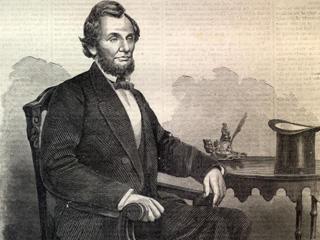World
Road from slavery to the Oval Office
WATCH VIDEO
Source: CCTV.com | 01-21-2009 15:07
Special Report: Inauguration of Barack ObamaThe history of black people in the United States has been a long struggle: from the days of slavery, to the hard-fought battles of the civil rights movement in the 1960s, and now to the White House.
 |
| In 1862, President Abraham Lincoln signed a bill ending slavery, after decades of efforts by activists to end the practice. |
As Barack Obama prepares to place his hand on Abraham Lincoln's bible and swear the Oath of Office, he is undoubtedly making history.
In 1862, President Abraham Lincoln signed a bill ending slavery, after decades of efforts by activists to end the practice.
Some eight and a half months later, Lincoln issued his Emancipation Proclamation.
Portia James, Anocostia Musium, Anocostia Museum, said, "Ten years later, 1873 is the first official participation of African Americans in a Presidential Inaugural. From that period to where you actually have a person occupying the Oval Office, is simply amazing."
But the Emancipation Proclamation did not automatically mean freedom. Life remained very difficult for the former slaves and their descendants in the century that followed.
Eventually, a new generation of black leaders emerged into prominence after the Second World War, including Martin Luther King Jr. They demanded racial and economic equality for African-Americans.



